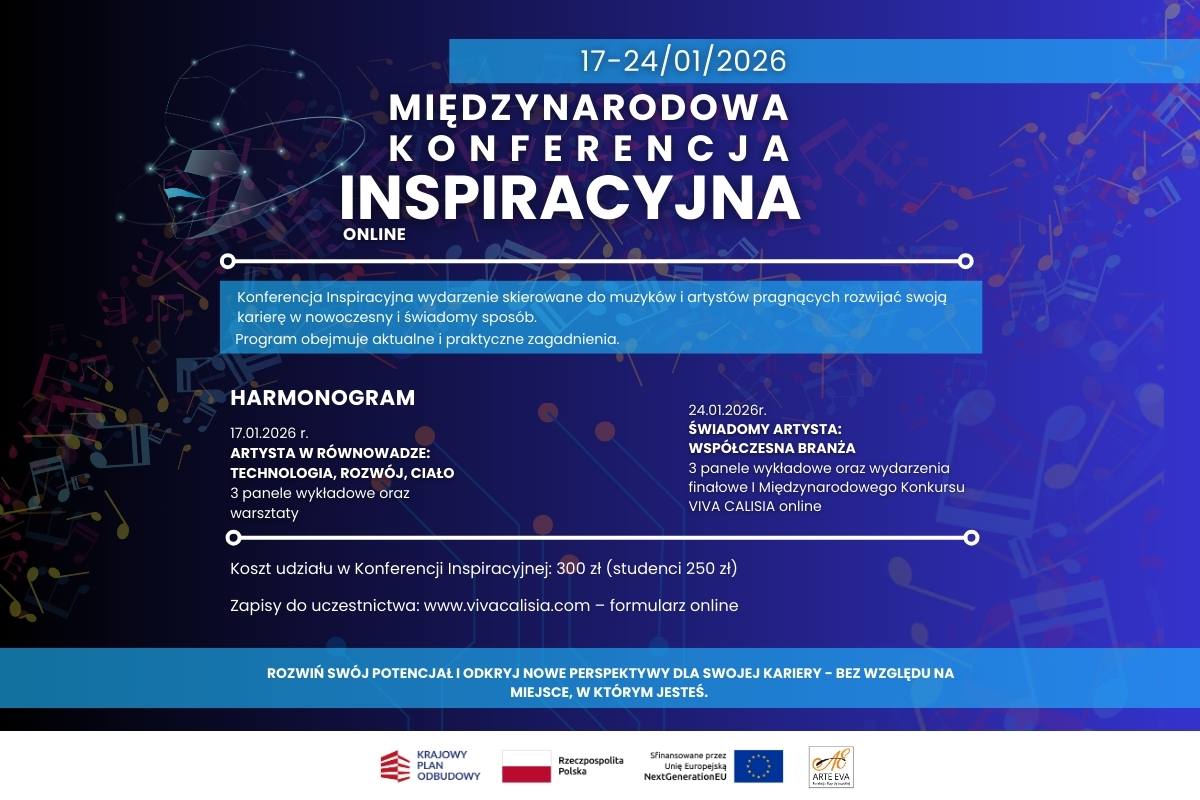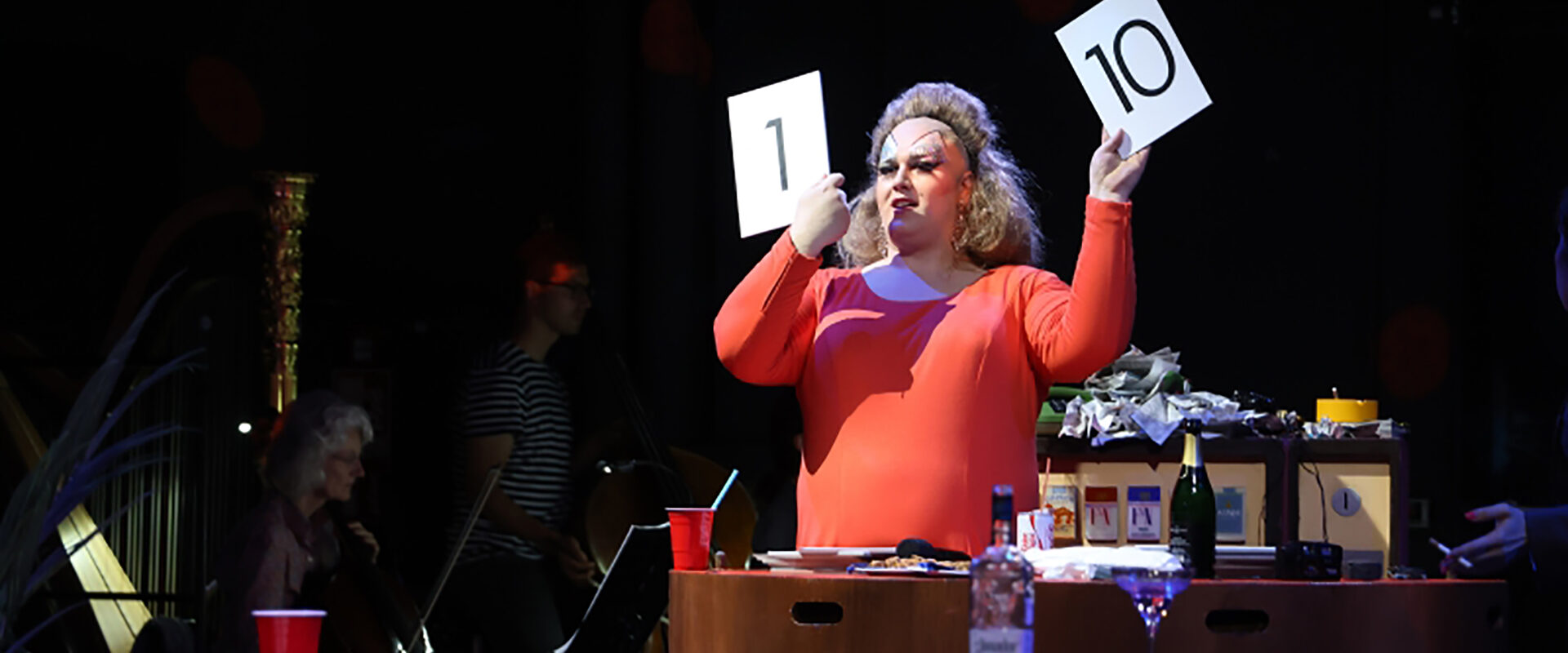 From drag queen Divine to Wagner’s Wotan: Grzegorz Pelutis talks to Jolanta Łada-Zielke
From drag queen Divine to Wagner’s Wotan: Grzegorz Pelutis talks to Jolanta Łada-Zielke
What was your vocal training like so far?
When it comes to my singing career, I believe in fate. I did not graduate from a music school, I went straight to college. After that, I was accepted to the Opera Academy in Warsaw. An invitation to the first Juan Pons International Singing Competition followed, and I won the Third Prize and the Special Prize. I heard from the committee, including Juan Pons himself, that although I had a low voice, I was a baritone and I should follow the path accordingly. I successfully auditioned for the International Opera Studio at the Staatsoper in Hamburg.
Aside from your training at the Opera Studio, have you been involved in any other projects?
Unfortunately, the class schedule is very tight. We do not get many opportunities to travel on contracts, but we do take part in competitions. The experience we gain here is extremely valuable. My colleagues represent a very high level, regardless of their origin, attitude to life or private views. There is chemistry between us on stage, which is essential in opera, since opera is musical theater and it is not limited to singing. Singers should also be trained actors.
In Reynaldo Hahn’s operetta “Ciboulette” you play Mr. Duparquet styled as a dragqueen. Your performance of the “handkerchief aria” is very touching.
I found the role challenging, because the French language is relatively foreign to me in terms of prosody and singing style, particularly in operetta. Pianissimo is not very easy to sing for me, and this extremely lyrical aria was even more of a problem. When I heard that Duparquet was going to be a drag queen based on the legendary Divine, I was very happy. At the same time, I was full of fear – although I feel part of the queer community and harbor a lot of sensitivity, I had to express it through the music that was not the simplest. Conductor Nicolas André preferred this aria in a compact form, while our musical arranger Johannes Harneit wanted it to be more bluesy, fluid – a “Puccini rubato”. I found a compromise and proposed my own interpretation, which is why I am extremely pleased with my debut.
They say Poles have a knack for foreign languages. Have you ever heard this opinion?
Yes, I have. Earlier on this year, I performed Wotan’s aria from “Rheingold” during open workshops: “Abendlich strahlt der Sonnenauge”. Native speakers who regularly visit Bayreuth told me my pronunciation was better than that of some German singers. I could not believe it, I thought it was a joke. Poles are indeed linguistically talented. Our native language allows us a lot in terms of articulation, thanks to its syntactic flexibility, multitude of consonants and open vowels.
Who have you learned the most from thus far?
I am currently working on my voice myself. I believe in the old Italian bel canto school, which was continued by the Lviv school of maestro Jerzy Artysz. He assumed singing was an extension of speech. My “musical father” is Professor Janusz Lewandowski – he formed me from nothing. The above gave me a solid technical base that allowed me to consciously develop my skills. I owe a lot to the Italian dramatic baritone Franco Vassallo, a student of Carlo Meliciani. It is said even a soprano can teach a bass, but when a profondo bass wants to introduce another profondo bass to his way of singing, this is invaluable.
Your dream role?
Wotan in all parts of “The Ring of the Nibelung” and The Flying Dutchman. Richard Wagner’s music is an integral part of me, but I need to mature vocally. Apart from the above-mentioned “Rheingold”, I have not tackled it yet. I also love verismo, I have three dream roles: Barnabas from Ponchielli’s “Gioconda”, Gérard from “Andrea Chénier” and the legendary Scarpia from “Tosca”. Verismo is definitely my favorite artistic trend.
Grzegorz Pelutis – baritone, born in Słupsk, honorary graduate of the Vocal Department of the Academy of Music in Szczecin in 2021, the class of Professor Janusz Lewandowski. He continued his vocal training at the Opera Academy of the Polish National Opera in Warsaw. Laureate of both Polish and international vocal competitions, including Prague Romansiada (2017), Internationaler Schweizer Musikwettbewerb (2021), and Juan Pons International Singing Competition (2022). In the same year, he qualified for the “Operalia” Plácido Dominga Competition as the only singer from Poland. He currently studies at the International Opera Studio at the Staatsoper in Hamburg.




